
Leaf through this issue of BBC Sky at Night Magazine, look at the numerous eye-catching photographs and marvel at the beauty of the cosmos. Then realise that everything we can see with astronomical telescopes - stars, nebulae, galaxies - amounts to a mere 5 per cent of the total content of the Universe. The remaining 95 per cent is composed of two mysterious components: dark energy - the 'force' behind the accelerating expansion of the Universe - and dark matter. We know they exist, but their true nature eludes us.
Enter Euclid, the next space mission in the Cosmic Vision science programme of the European Space Agency (ESA). Due to launch into space in the first half of July from Cape Canaveral in Florida, this ambitious space telescope will focus on the dark Universe by mapping and studying no less than two billion galaxies. "Nothing like this has ever been done before," says Euclid's independent legacy scientist Ivan Baldry of Liverpool John Moores University.
Euclid's observations will reveal the expansion history of our Universe (which is governed by dark energy) and the three-dimensional distribution of mass (which mainly consists of dark matter). As a bonus, the mission will check whether Albert Einstein's general theory of relativity is the right formulation of gravity on cosmic scales. According to project manager Giuseppe Racca at ESTEC (ESA's science and technology centre in Noordwijk, the Netherlands), "This combination is the unique selling point of Euclid".
The road to launch
The Euclid mission was selected in 2011 and formally adopted by ESA in the summer of 2012. NASA became a partner in the project in early 2013. At present, the Euclid consortium has about 2,000 members from 13 European countries plus the United States.
Denne historien er fra July 2023-utgaven av BBC Sky at Night Magazine.
Start din 7-dagers gratis prøveperiode på Magzter GOLD for å få tilgang til tusenvis av utvalgte premiumhistorier og 9000+ magasiner og aviser.
Allerede abonnent ? Logg på
Denne historien er fra July 2023-utgaven av BBC Sky at Night Magazine.
Start din 7-dagers gratis prøveperiode på Magzter GOLD for å få tilgang til tusenvis av utvalgte premiumhistorier og 9000+ magasiner og aviser.
Allerede abonnent? Logg på

Could We Find Aliens by Looking for Their Solar Panels?- Designed to reflect ultraviolet and infrared, the panels have a unique fingerprint
Researchers searching for life beyond Earth spend a lot of time thinking about what telltale signs might be detectable astronomically. Forms of unambiguous evidence for the presence of life on another world are known as biosignatures. By extension, techno signatures are indicators of activity by intelligent, civilisation-building life.

Antimatter- In our continuing series, Govert Schilling looks at antimatter, the strange counterpart to most of the matter filling our Universe
Particles and corresponding antiparticles are very much alike, except they have opposite electrical charges. For instance, the antiparticle of the electron - known as the positron - has the same tiny mass, but while electrons carry a negative electrical charge, positrons are positively charged.
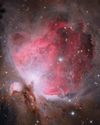
Where Have All The Milky Way's Early Stars Gone?- Our Galaxy has a curious lack of pristine stars
The Big Bang produced a Universe filled almost exclusively with hydrogen and helium; all other elements - what astronomers call metals - were produced by stars, supernovae and everything that happens later. So if you can pick out a pristine star with no metals polluting it from among the billions in the Milky Way, then you are likely to have a star dating from our Galaxy's earliest days.
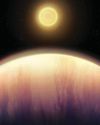
Inside The Sky At Night - Two years ago, exoplanet scientist Hannah Wakeford received some of the first data from the JWST
Two years ago, exoplanet scientist Hannah Wakeford received some of the first data from the JWST. In July's Sky at Night, we discovered what she's learned since then.
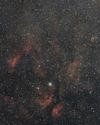
How to stack DSLR data in Siril
Easily combine multiple frames to boost detailin your astro photos
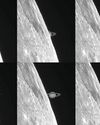
Lunar occultation of Saturn
You'll need to strike a balance on 21 August to capture the Moon covering the ringed planet
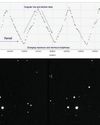
How to plot a variable star light curve
A rewarding project to chart stars that change brightness
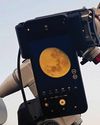
Smartphone photography with a telescope
Mary Mcintyre explains how to get impressive night-sky images using your phone
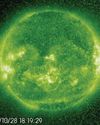
Once-a-century solar storm is overdue
If a Carrington Event struck today it would be catastrophic, says Minna Palmroth
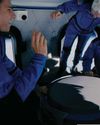
The new era of human spaceflight
There's been a step-change in crewed space missions since the dawn of the 21st century. Ben Evans charts its course and looks ahead to future horizons